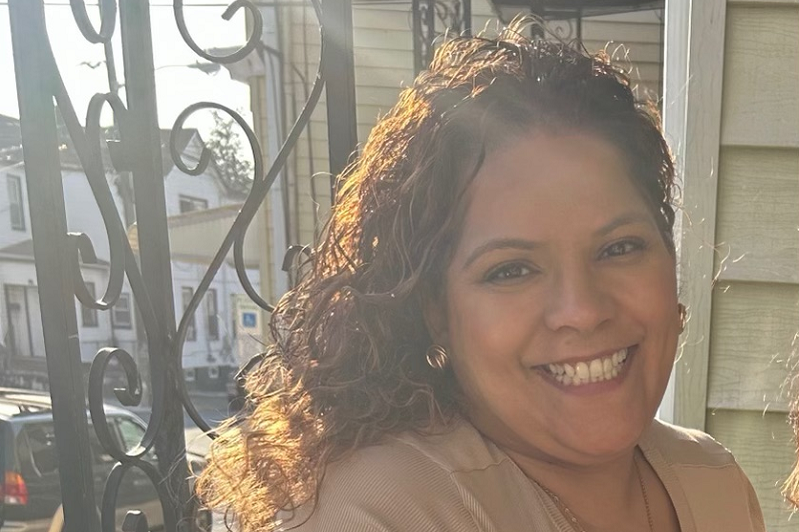One Woman’s Journey to Reverse Her Type 2 Diabetes

April 17, 2024
When 35-year-old Crystal Gonzalez felt thirsty all the time, she knew something wasn’t quite right. “I began to feel like my body was the Sahara Desert,” she says.
Crystal’s mother was diagnosed with Type 2 diabetes at age 34 after experiencing excessive thirst, a sign of high blood sugar or hyperglycemia. “I know there is a genetic link to diabetes, so I was worried,” says Crystal.
Her primary care physician determined her blood sugar level was over 500 mg/dL, a reading that is considered to be dangerously high. Her hemoglobin A1C, a blood test that measures your average blood sugar levels over 3 months, was 11.5%. A normal A1C is 5.7% or lower.
Crystal’s suspicion was correct. She had developed Type 2 diabetes and needed to take action to turn around her metabolic health.
Finding the Right Diabetes Support at the Right Time
Crystal is one of more than 1.4 million Americans diagnosed with diabetes every year. Many experts agree that Type 2 diabetes has become an epidemic in our country, with consequences that can include heart attacks, stroke, kidney disease, blindness, amputations and more.
Chronic levels of high blood sugar from eating certain foods can alter your body's ability to use insulin properly, leading to Type 2 diabetes. In Crystal’s case, she grew up enjoying many dishes from her Puerto Rican heritage, including a lot of rice, potatoes and other starches that are high in carbohydrates, which the body converts to sugar. “We have a vibrant and delicious food culture, but sometimes, it means too many starches and an abundance of food,” Crystal says.
She made an appointment with an endocrinologist and began to consider other ways to address her diabetes. By chance, her place of worship hosted a women’s conference in May 2023, which featured staff and information from The MOLLY Center at Hackensack University Medical Center.
“At that point, I was very upset and wasn’t sure what to do to manage my diabetes,” says Crystal. “I took one of The MOLLY Center’s cards, and about 20 days later, I had my first appointment. Being introduced to The MOLLY Center really came at the right time for me and my health.”
Comprehensive Support Services and Treatments for Diabetes
The MOLLY Center offers an unparalleled approach to treating and managing diabetes, including a wide range of support services and the most up-to-date treatments.
“I learned so much from the nutritionists at The MOLLY Center,” Crystal says. “They taught me that diabetes affects the whole body, and that it’s a lot more than just eating too much sugar. I learned how to read food labels and the information in the packaging. They taught me that food is not the enemy, and that I had the ability to critically assess what I was going to eat. I needed to eat more protein and vegetables and drink more water, and yes, while I had to cut down on carbs and sugar-laden foods, I did not need to cut out anything completely. It’s all about moderation.”
She also learned that Type 2 diabetes is reversible with the right course of action. “I do have antibodies for Type 2 diabetes, but my condition is very sensitive to diet and exercise, which gives me hope for both myself and my daughter,” says CrystaI. “I learned that Type 2 is not necessarily passed down through the blood.”
In addition to managing her diet, Crystal has adopted some behavioral techniques to reduce calories and lower her weight. One is eating more slowly and focusing on the food. “I eat slowly and really enjoy it. It makes a difference to first appreciate the food and the moment, and also to eat less, but more deliberately.” She also tries to walk for at least half an hour or more after dinner.
Today, Crystal’s A1C level is down from 11.5% to 6.5%. She has shed 32 pounds, and her weight loss resulted in losing fat but not muscle. “I still have a lot of work to do, and I want to lose another 35 pounds and continue to bring my blood sugar marker numbers down,” she says. “But I really feel like I turned around the direction of my diabetes, and I could not have done it without the help of The MOLLY Center.”
Next Steps & Resources
- To make an appointment with a diabetes specialist, call 800-822-8905 or visit our website.
- Learn more about diabetes and endocrinology care at Hackensack Meridian Health.
The material provided through HealthU is intended to be used as general information only and should not replace the advice of your physician. Always consult your physician for individual care.






